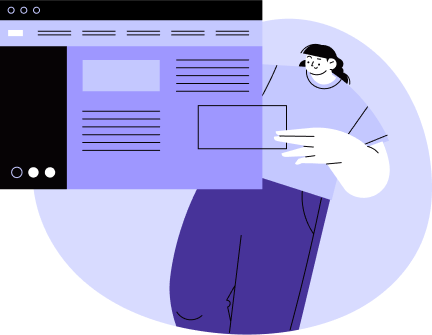Business
15 AI Business Ideas in Australia for 2025 and Beyond

- AI-powered AgriTech, personalized healthcare, and retail inventory tools
rank among the most profitable AI business ideas in Australia. - Generative AI marketing, legal document automation, and AI-driven chatbots
help businesses scale faster and serve customers better. - Renewable energy management, bushfire prediction, and real estate market analysis
present high-impact opportunities for local innovation. - Targeting niche sectors with tailored AI solutions enables quick market entry,
faster adoption, and strong long-term growth potential.
The future of businesses in Australia is being rewritten by a single force: artificial intelligence. While some still see AI as a distant buzzword, it’s already reshaping industries from the ground up. We see it on the dashboards of farmers optimizing crop yields, in the back-end systems of retailers managing inventory, and in the boardrooms of major banks. This isn’t just about using a new tool; it’s about building a new business model entirely. The next wave of winners will be those who seize this moment.
Australia is standing at a rare inflection point. From bushfire prediction platforms to hyper-personalized marketing engines, the playing field is wide open for founders who can match AI’s capabilities with Australia’s most urgent challenges and untapped opportunities.
This isn’t about chasing every shiny new technology—it’s about picking the right battles to fight. In the next few minutes, you’ll see 15 AI business ideas built specifically for the Australian market. Each one is rooted in solving real problems, scaling quickly, and creating measurable impact. The opportunity is here. The question is—are you ready to build on it?
Atlassian co-founder Scott Farquhar spoke directly about this recently, saying, “We’re entering the next energy revolution, but this time using energy to power knowledge work.” These aren’t empty words. They’re a push to act now. Success means looking past all the noise and finding practical, lasting AI business ideas in Australia that fix real problems for Australian customers and companies.
Bonus Read: AI in Australia (A Practical Guide)
Don’t Wait for the Future. Build It.
We partner with visionaries like you to turn raw potential into profitable businesses.
Australia’s AI Moment: The Market Landscape and a Call for Action
The future of AI businesses in Australia is looking brighter than ever, with significant growth and investment on the horizon. Australia’s AI market hit USD 2,072.7 million in 2024. IMARC Group projects the market will grow to USD 7,761.0 Million by 2033, showing a (CAGR) of 15.17% from 2025-2033.

Scott Farquhar (Australian businessman and former CEO of Atlassian), gave a speech at the National Press Club where he warned that Australia might end up just buying AI products from other countries instead of making our own. This would happen if we don’t spend enough money on research, building the right infrastructure, and making good policies.
He said Australia has a real shot at winning in the global AI competition, especially since we could become a major place for data centers. Even though the numbers look good, there are still some big challenges with Aussie AI startups we need to fix. Things like not having enough skilled people, small companies struggling to get money, and arguments about who owns what ideas.
The good news is that programs like government grants for AI businesses in Australia through the AI Adopt Programme are trying to help fix these problems. They give money and support to people who want to try new things. With the right help and smart planning, AI startups in Australia could do really well.
This is why having a clear plan and good AI startup ideas in Australia matters so much. Here are 15 business ideas that make sense for our specific market.
15 Strategic AI Business Ideas for the Australian Market for 2025 and Beyond
Australia’s rapidly growing AI landscape presents abundant opportunities for entrepreneurs who know where to look. From revolutionizing industries to enhancing customer experiences, AI-driven businesses show vast potential. This guide goes beyond the general buzz to highlight specific, high-impact concepts. We’ve curated 15 strategic AI startup ideas in Australia, where each concept targets a proven market need in sectors like precision agriculture, personalized healthcare, and intelligent logistics.
Bonus Read: How AI Impacts Your Business Domain
AI-Powered Agri-Tech for Precision Farming
The Concept: Build an AI app/platform combining satellite images, IoT sensors, and ground monitoring to track soil health, forecast crop yields, and control irrigation systems for Australian farms. The platform can deliver live data on pest problems, nutrient needs, and farm conditions, giving farmers complete visibility into their operations. Australia’s huge farming industry makes this a realistic opportunity among promising AI business ideas to launch in Australia.
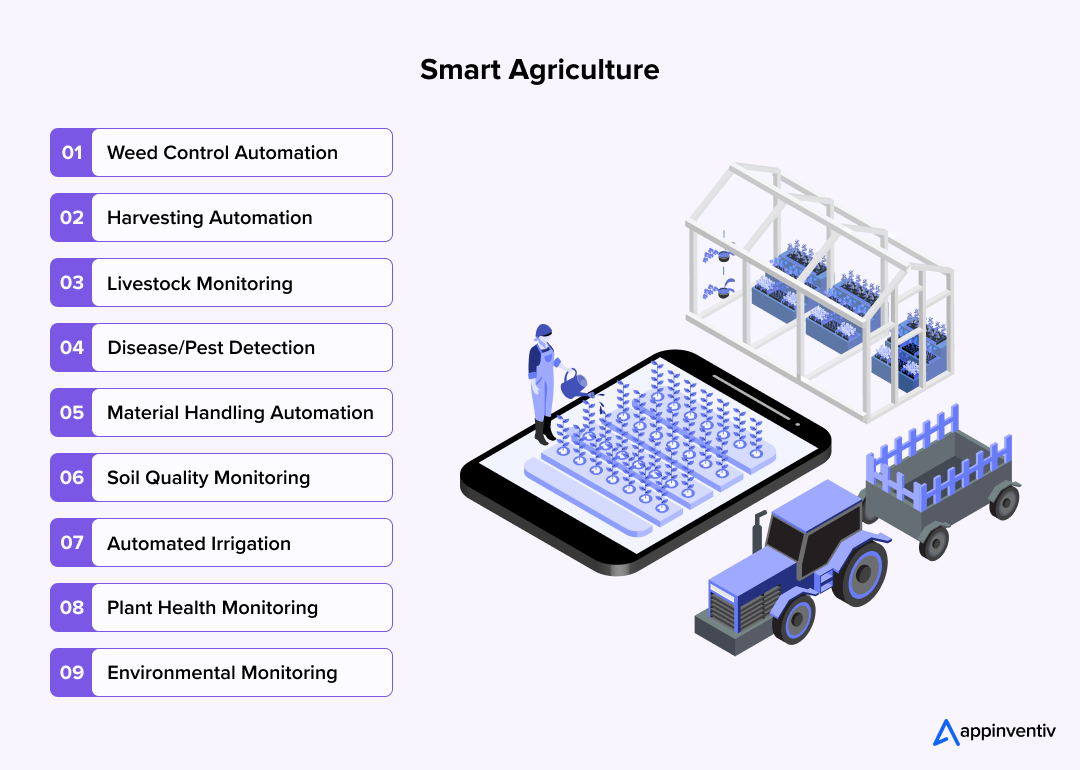
Better Resource Use and Higher Profits: AI transforms the sector hit hard by climate shifts and weather uncertainty. Smart resource management—water and fertilizer optimization—boosts both profits and environmental sustainability for Australian farmers. AgriWebb shows what’s possible here, a local company using digital tools to help livestock farmers run their operations more effectively.
AI-as-a-Service Model for Hyper-Personalized Marketing Campaigns
The Concept: Build a service using AI to create custom marketing content—email headlines, ad text, social posts—for small and medium businesses. The platform studies customer behavior to find the best messages and channels, then automatically creates and sends targeted campaigns. This ranks among the most practical and valuable AI startup ideas in Australia.
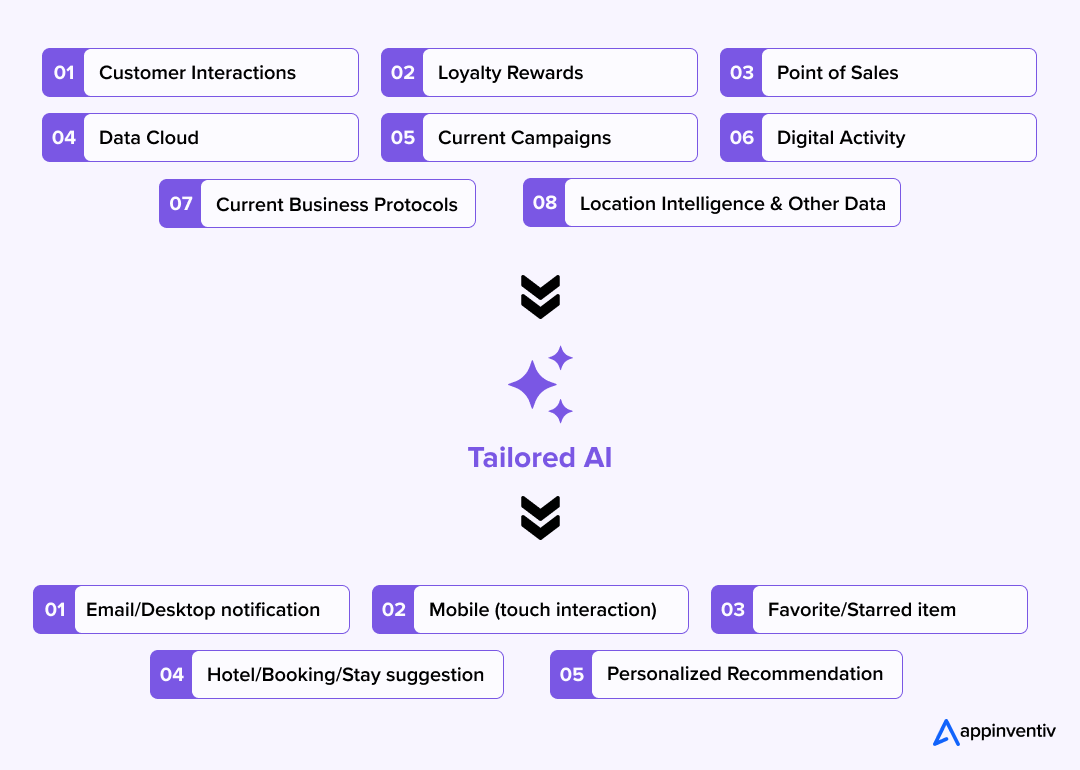
Growing Customer Connections: Most small Australian businesses can’t afford big marketing teams. This AI-as-a-Service model offers an affordable way to create engaging, brand-consistent content quickly, helping them compete with bigger companies. Cuttable (an Australian AI-powered advertising platform) uses AI-as-a-Service to automate personalized ads, optimize content in real-time, and segment audiences. It enhances customer connections through consistent, data-driven engagement across digital channels, boosting loyalty and campaign performance.
Must Read: Generative AI for Businesses
AI-Driven Supply Chain Optimization for Logistics
The Concept: Create an AI supply chain system that spots delivery problems early, finds better routes, and tracks inventory live for Australian companies. The platform learns from changing conditions—traffic jams, weather shifts, customer demand spikes—to keep goods moving smoothly and cheaply. This stands out as a high-impact opportunity among promising AI business ideas in Brisbane, Australia’s logistics center.
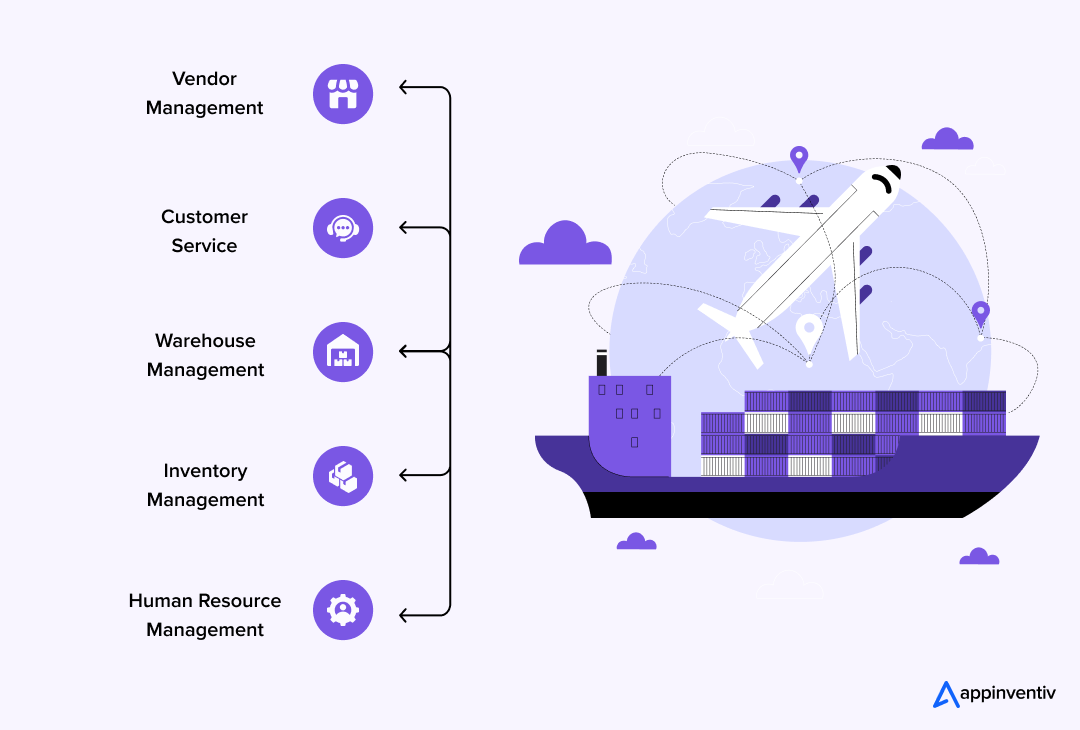
Lower Costs and Stronger Operations: Australia’s huge distances make shipping complex and expensive for businesses. AI can simplify these challenges, helping companies slash fuel bills, speed up deliveries, and handle unexpected problems better. Yusen Logistics shows this works—they use AI systems to give clients live tracking and supply chain data.

Bonus Read: AI in Supply Chain Analytics
AI for Bushfire and Natural Disaster Prediction
The Idea: Build a smart computer system that helps predict bushfires and other natural disasters. This system would look at old weather records, current weather patterns, and pictures from space satellites to figure out where fires might start and which way they’ll spread. Government teams and firefighters would get early warnings so they can get ready and take action faster. This could save lots of lives and stop millions of dollars’ worth of damage to homes and businesses. This is one of the most important AI business ideas to launch in Australia because it actually helps protect people.

Averting Catastrophe and Protecting Communities: Bushfires and floods happen over and over again in Australia, and they cause terrible damage every time. A smart computer system that can predict these disasters could give the government and local towns important early warning. This would help save people’s lives and protect valuable resources. The idea of a smart “computer satellite” like DeepMind’s AlphaEarth shows how this kind of system could study and predict dangerous weather events around the world.
AI-Powered Legal Document Automation
The Idea: Create a SaaS platform that uses AI to draft, review, and analyze legal documents, from contracts to terms of service. This system could also flag potential compliance risks and suggest amendments based on local legal precedents, significantly reducing the time and cost associated with legal work. This is among the many strong AI business ideas in Sydney, home to many of the country’s top law firms.
Democratizing Legal Services: Legal services can be prohibitively expensive for startups and small businesses. This kind of platform democratizes access to legal support by automating routine tasks, making legal compliance more affordable and efficient. An example of this is the startup August, which builds AI tools to automate document-heavy legal work, proving that this model is gaining traction globally.
Must Read: 10 Use Cases of AI in the Legal Industry
AI-Based Cybersecurity for SMEs
The Idea: Offer a cybersecurity service with AI that uses machine learning to detect and neutralize threats in real time for small and medium-sized enterprises. This solution would go beyond simple firewalls by using behavioral analytics to spot unusual activity and automatically respond to a wide range of sophisticated threats. This is a fantastic example of a profitable business idea for artificial intelligence.
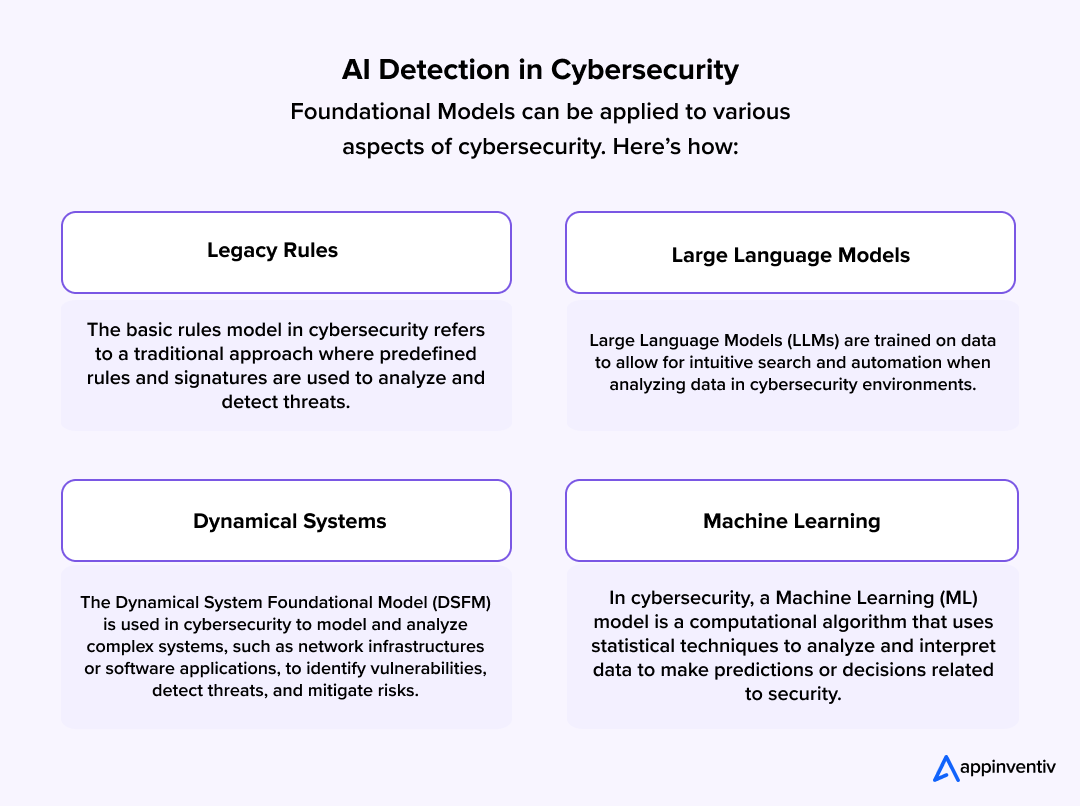
Fortifying Australia’s Digital Economy: Cyberattacks are a growing threat, and SMEs often lack the resources to defend themselves effectively. An AI-powered solution provides an affordable, proactive defense mechanism that can identify zero-day attacks and sophisticated threats, protecting a vulnerable but vital part of the Australian economy. A local example of this is the Australian Industry Group (Ai Group), which offers AI-powered cybersecurity consulting and training services specifically to assist SMBs.
AI for Personalized Healthcare and Wellness Plans
The Idea: Develop an AI application that creates personalized health and wellness plans based on a user’s health data, lifestyle, and even genetic information. The platform would act as a digital health coach, monitoring progress, offering motivational support, and adjusting plans in real time to meet evolving needs. This is one of the most promising AI startup ideas in Australia.
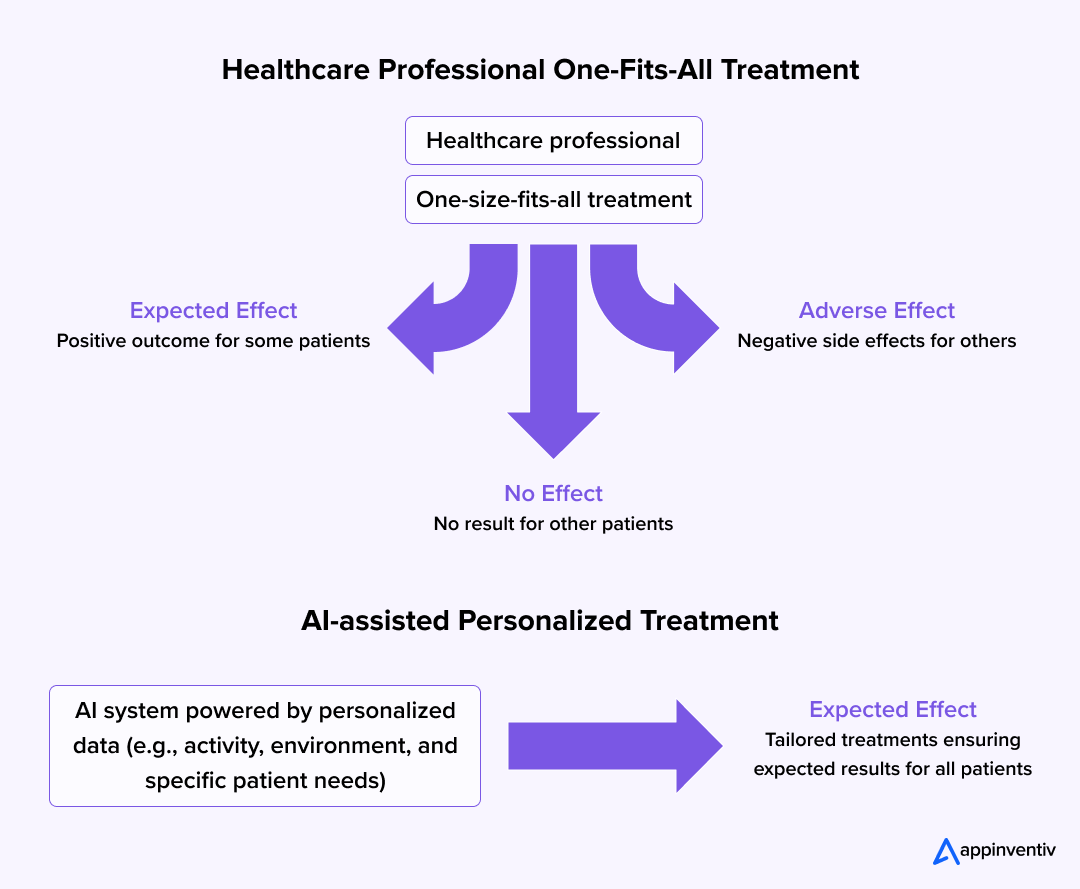
A Proactive Approach to Health: With an aging population and a growing focus on preventative health, there’s a huge market for personalized healthcare solutions. This kind of application for AI in healthcare for Australia empowers individuals to take control of their health, potentially reducing the strain on the public healthcare system. While many companies operate in this space, the broader trend is exemplified by how platforms are leveraging AI to provide tailored patient care and predictive analytics to improve health outcomes.
AI-Driven Retail Inventory Management
The Idea: Build an AI system that predicts consumer demand and automates inventory management for Australian retailers, particularly in popular hubs like Melbourne. This system would analyze sales data, social media trends, and even local weather forecasts to provide highly accurate predictions, ensuring stock levels are always optimized. This is an ideal idea among the many AI business ideas in Melbourne, a city with a thriving retail and fashion scene.

Maximizing Profit and Minimizing Waste: Retail is a fast-paced and competitive industry. AI can help businesses minimize stock-outs, reduce overstocking, and make data-driven decisions on purchasing and promotions. This leads to increased profitability and happier customers. Globally, giants like Amazon and Woolworths use AI for demand forecasting and inventory management, demonstrating the proven value of this model for Australian retailers.
AI for Real Estate Market Analysis
The Idea: Create an AI platform that analyzes vast amounts of real estate data—including sales histories, property features, zoning laws, and local amenities—to predict property values and identify market trends. The platform could also assist in generating 3D models of potential developments, dramatically shortening the early feasibility phase. This is one of the many innovative AI business ideas in Perth, where the real estate market is highly dynamic.

Smarter Development and Investment: The Australian real estate market is notoriously complex. An AI-powered tool can provide a level of data analysis that human agents and planners can’t, offering a significant advantage for buyers, sellers, and developers. A great example of this is the NSW Government’s “AI in Planning” initiative, which uses AI to pre-screen development applications, saving time and increasing efficiency for councils and builders.
Related Read: AI in Real Estate
AI-Powered Customer Service Chatbots
The Idea: Develop a specialized AI-powered customer service platform that provides and customizes AI-powered chatbots for businesses, particularly for customer service inquiries. These advanced chatbots would use natural language processing to understand complex queries and provide human-like responses, seamlessly escalating issues to human agents only when necessary.

Delivering 24/7 Support and Boosting Efficiency: Many Australian businesses, particularly in e-commerce and services, struggle to provide 24/7 customer support. An AI chatbot can handle a large volume of routine queries, freeing up human staff to handle more complex issues and providing customers with instant, round-the-clock support. Local company AI Chatbot Australia is a prime example, providing custom solutions that have reduced administrative workloads for their clients.
AI for Sustainable Urban Planning
The Idea: Build an AI platform that assists urban planners in Australian cities by simulating the impact of new developments on traffic, resource consumption, and environmental factors. The tool could also analyze public feedback from consultation documents to identify key community concerns quickly and efficiently. This is a key AI tech startup idea for Australian market 2025 due to its amalgamation of sustainability, combined with the modern tech landscape.
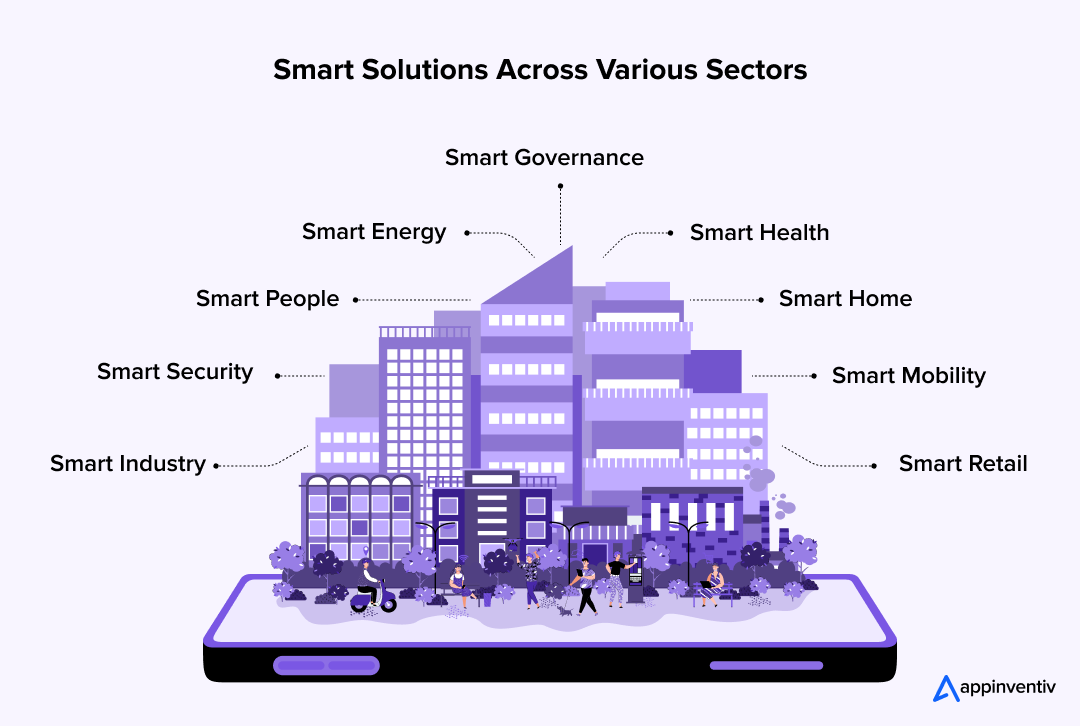
Creating Smarter, Greener Cities: Australia’s major cities are growing rapidly, and sustainable development is a top priority. This tool can help planners make smarter, data-backed decisions that lead to more livable, efficient, and environmentally friendly urban spaces. A research project at the University of Waikato has demonstrated how AI can analyze thousands of public submissions on planning proposals in a matter of hours, a task that would take human planners weeks.
AI for Talent Acquisition and HR Automation
The Idea: Launch an AI-driven platform that automates the recruitment process by screening resumes, identifying qualified candidates, and even conducting initial interviews using conversational AI. The platform with AI in HR would help businesses of all sizes to reduce unconscious bias and make data-driven hiring decisions. This is one of the more impactful AI business ideas in Australia.
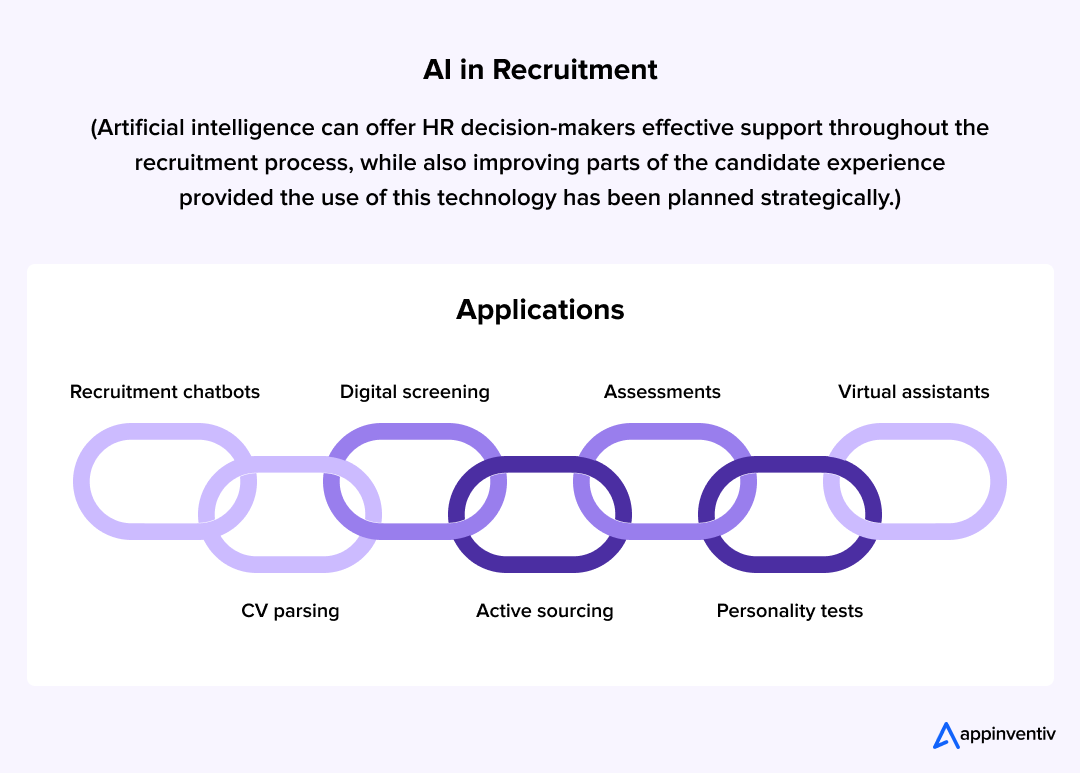
Finding the Right People, Faster: The Australian job market is tight, and finding the right talent can be a major challenge. This solution helps businesses streamline their hiring process, reduce unconscious bias, and find the best candidates more efficiently. Companies like iSmartRecruit offer AI-powered talent acquisition software with features like resume parsing and candidate matching, demonstrating the commercial viability of this idea.
Innovative AI Solutions for Renewable Energy Management
The Idea: Develop an AI system that optimizes energy distribution and storage for residential and commercial properties using renewable sources like solar panels. This system would predict energy needs and weather patterns to maximize the use of solar energy and minimize reliance on the grid, helping users save money and reduce their carbon footprint. This is one of the most innovative Australian AI business ideas.
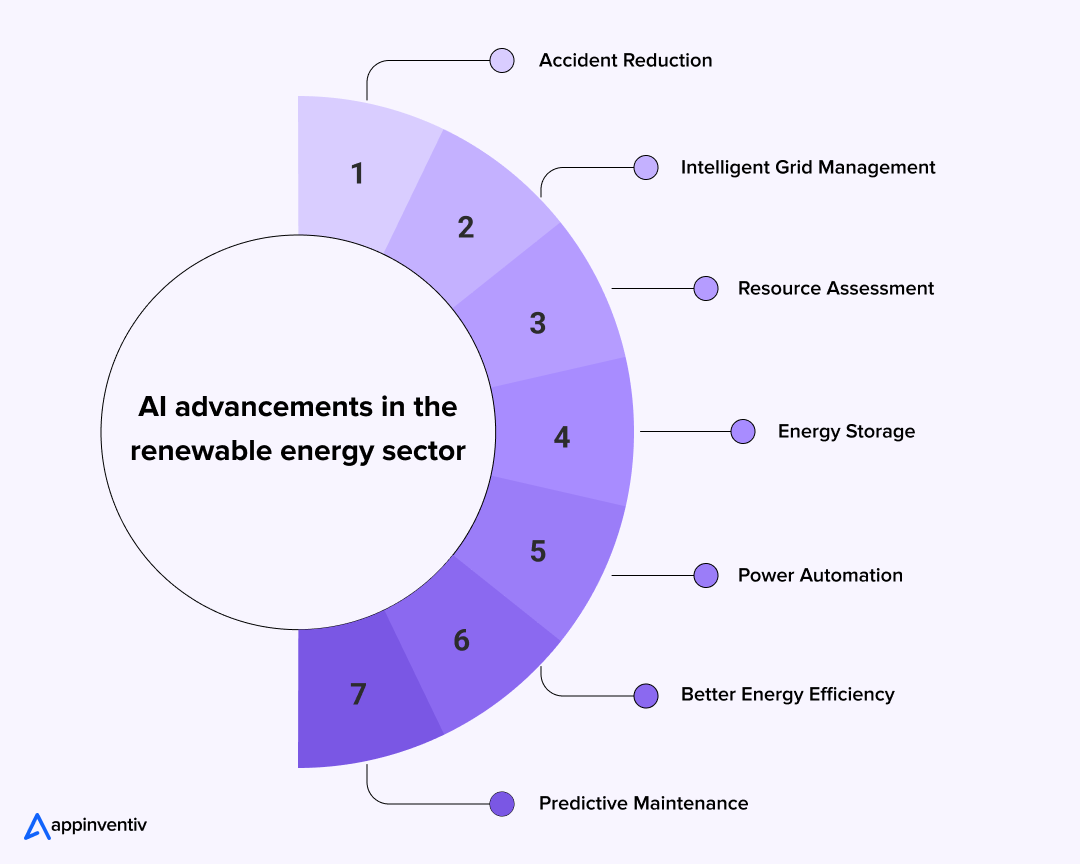
Empowering the Clean Energy Transition: As Australia moves towards a more sustainable energy future, managing the complexity of renewable energy sources is becoming crucial. An AI solution can maximize the efficiency of solar systems and batteries. A recent report from Biomass Producer highlights how AI is already being used to optimize smart grids and predict wind farm outputs in Australia, showing the technology’s real-world impact.
AI for Financial Fraud Detection and Analysis
The Idea: Create a fintech fraud detection software that uses machine learning to detect anomalous transactions and potential fraud in real time for banks and financial institutions. Unlike traditional rule-based systems, this AI would constantly learn from new data, allowing it to identify new and sophisticated fraud tactics as they emerge. This is a very compelling example among the many profitable business ideas for artificial intelligence.
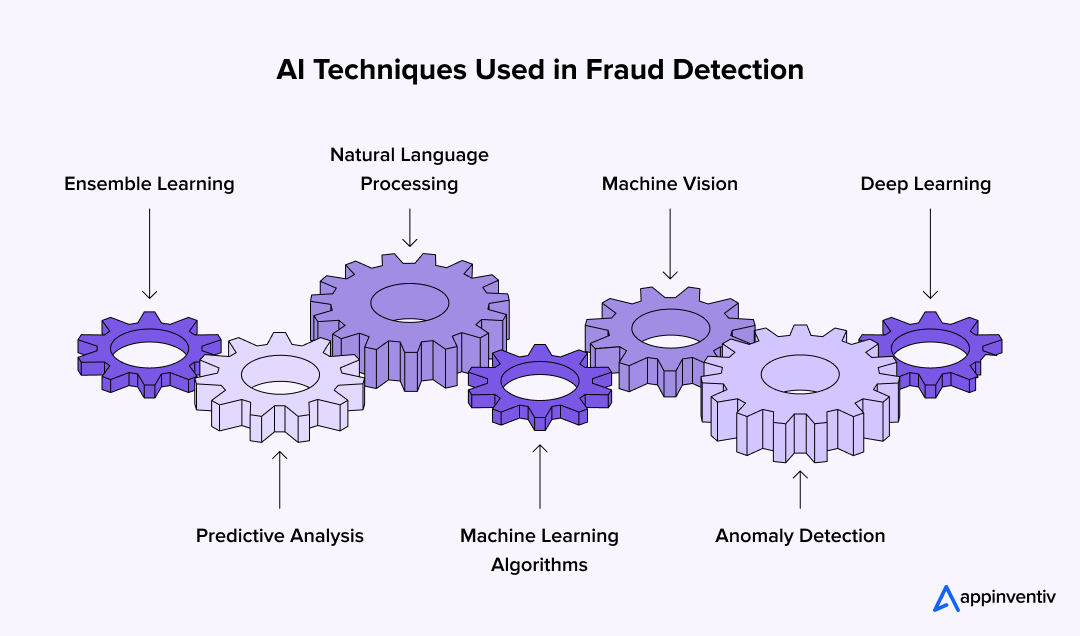
Securing the Financial System: Financial security is paramount for both businesses and consumers. By using AI to continuously monitor and learn from transaction data, financial institutions can stay one step ahead of fraudsters, protecting their customers and their bottom line. The Commonwealth Bank of Australia is a prime local example, widely known for its use of AI and machine learning to combat fraud and protect its customers.
AI-Powered Tutoring and Educational Platforms
The Idea: Launch an educational platform that uses AI to provide personalized learning paths and tutoring for Australian students, adapting to their individual pace and style. The AI based education could identify a student’s strengths and weaknesses and generate custom exercises, quizzes, and lessons to fill knowledge gaps. This is an impactful AI tech startup idea for Australian market, considering the need for better educational platforms focusing on interactive learning.
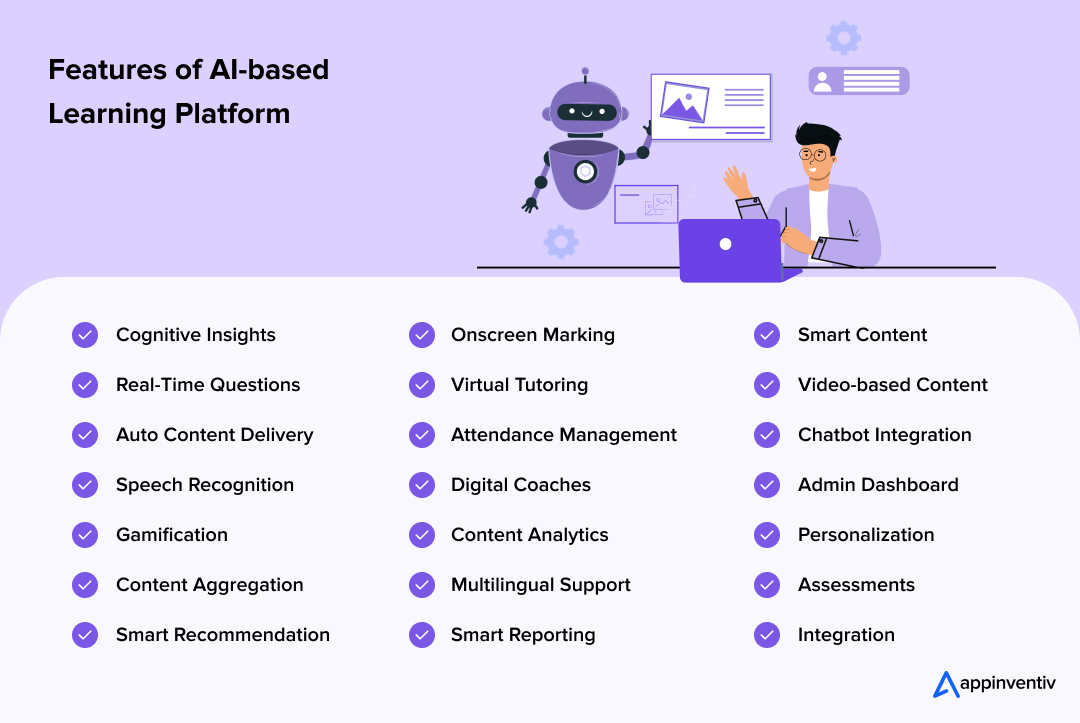
Personalizing Education at Scale: With increasing pressure on the education system, an AI-powered tutor can supplement classroom learning, provide a level of personalized attention that’s difficult to scale, and help bridge the gap in educational outcomes. Platforms like Eduaide.Ai and Mindgrasp are leading the way by offering tools that empower teachers to create personalized learning materials and help students learn more efficiently.
Bonus Read: Building AI Language Learning App (A Complete Guide)
You’ve got the ideas, now it’s time to execute. Discover how our AI development services can help you achieve your vision!
The AI Implementation Playbook: A Practical Guide for Australian Leaders
Business leaders see AI’s potential clearly, but the practical implementation of artificial intelligence business ideas remains unclear. This creates a major roadblock for entrepreneurs without big budgets. The smart approach means starting small and focused. Successful AI adoption begins with “micro innovation”—fixing one specific, valuable problem using targeted AI tools.
Here’s how to make AI business ideas in Brisbane and other cities actually work:
- Start with the Problem: Don’t look for fancy AI tools first. Find your biggest business pain instead. Are you losing customers? Shipping taking too long? Phone lines always busy? Figure out what’s really broken before you buy anything to fix it.
- Clean Up Your Data: AI only works if your data works. Check what information you have before building anything. Make sure it’s correct, organized, and easy to find. This boring work takes time but it’s the most important part.
- Start Small: Big AI projects can go wrong fast. Work with local companies or universities on tiny test projects first. See if the technology actually works and gives you good results without risking lots of money. What you learn here helps with bigger projects later.
Finding good AI people in Australia is tough, especially if you don’t have money for a full team. Instead of dealing with hiring and training headaches, getting another company to do your AI work might be your best choice. Working with a company like Appinventiv, which has people in Australia, gives you access to experts while you focus on growing your business.
Why Get Others to Do Your AI Work:
- Get Real Experts: Work with people who already know AI and can get things done.
- Focus on Your Business: Let AI specialists handle the tech stuff while you grow your company.
- Save Time and Money: Skip the long hiring process and training costs of building your own team.
When you outsource, you get the skills you need without the hassle of managing a tech team yourself.
Appinventiv developed Mudra, an AI-based budget management app that improved engagement by 40% and budgeting accuracy by 30%. Have a look at how we did it.
The Ethical Compass: Leading with Integrity in the Age of AI
AI adoption brings growing ethical and governance challenges. Business owners can’t treat this as just an IT department problem—it needs board-level attention. Ignoring ethics leads to damaged reputation, lawsuits, and lost customer trust. Dr. Catriona Wallace from the Responsible Metaverse Alliance says AI governance belongs at the heart of company strategy.
Business leaders can maintain integrity while building responsible AI practices. How? Let’s find out:
- Understanding Algorithmic Bias: AI learns from data. Biased data creates biased decisions. This matters most in hiring and lending decisions. Leaders need regular audits of their data and models to spot and fix bias problems.
- Protecting Data Privacy and Security: AI uses massive amounts of sensitive information. Australia’s Privacy Act controls how companies collect and use this data. AI business ideas in Perth and other cities need strong data protection systems to stay compliant and prevent breaches.
- Ensuring Transparency and Explainability: When AI approves loans or flags fraud, leaders must understand the reasoning. AI’s “black box” problem creates real risks. Transparency means explaining how AI reached its conclusions—crucial for responsible use.
- Defining Human-in-the-Loop: Automation helps, but humans must stay involved in important decisions. People review AI recommendations using empathy, context, and moral judgment that machines can’t match.
- Building Responsible AI Culture: Embed ethics throughout company culture from leadership down. Create clear guidelines, train employees regularly, and appoint ethics committees or officers, which is highly essential for anyone building an AI tech startup idea for Australian market 2025, focused on lasting success and trust.
Success requires mixing innovation with practical thinking. Exploring innovative Australian AI business ideas is just the start for new AI companies. Real success comes from smart execution. Perth, Sydney, Melbourne, Brisbane—every market is ready for change. You just need to begin.
Transform Your Australian Startup Vision of AI Innovation with Appinventiv
Forward-thinking entrepreneurs are transforming their operations through strategic AI implementation. Partnering with an established AI development company in Australia like us represents your pivotal business decision. Our team of 1,600+ technology experts brings a proven track record, delivering 3,000+ digital masterpieces since 2015. This experience establishes us as Australia’s premier AI development powerhouse.
Our AI expertise consistently transforms businesses across diverse sectors, earning trust from global leaders like the Americana Group and Flynas. Building on this foundation, our comprehensive AI development services encompass machine learning algorithms alongside generative AI solutions and intelligent automation systems. These integrated approaches streamline operations while driving exponential growth.
Appinventiv specializes in developing sophisticated AI-powered applications tailored to business needs. We build natural language processing systems, computer vision solutions, predictive analytics platforms, and chatbot integrations using advanced frameworks. Our technical capabilities span TensorFlow, PyTorch, and OpenAI APIs, complemented by custom neural network architectures. This comprehensive approach enables us to build intelligent solutions that adapt and evolve with your business requirements.
Why Choose Us for Your AI Journey:
Our seasoned AI strategists and developers work from ideation to deployment. We are known to leverage cutting-edge technologies to create intelligent solutions that automate mundane processes and enhance decision-making capabilities.
Contact Appinventiv today for consultation and discover how our AI services can accelerate your business growth by 10x.
Frequently Asked Questions (FAQs)
Q. What Are the Best AI Business Ideas for Startups in Australia?
A. Several top AI business ideas in Australia show promise for Australian startups. These include AI-powered AgriTech, FinTech solutions, MedTech innovations, AI-driven Cybersecurity, and AI-based EdTech platforms.
Q. Are AI Startups Profitable in Australia?
A. AI startups in Australia prove profitable indeed. Several companies achieve significant growth and attract substantial investment. Heidi Health serves as a prime example. This AI-powered medical scribe platform secured over AUD $16 million in Series A funding and supports over two million patient interactions weekly. This highlights both scalability and market demand effectively.
Splose offers another success story. This practice management software serves allied health professionals specifically. The company raised $5 million successfully and boasts a customer base exceeding 15,000 across multiple countries.
These examples underscore the profitability potential for AI startups in Australia. Companies addressing specific industry needs with innovative solutions show particular promise.
Q. Which Industries in Australia Are Best Suited for AI-based startups?
A. Australia has several good areas for starting AI businesses. Farming is a big one – AI can help farmers use smart tools, sensors, and satellite pictures to grow crops better. Healthcare is another good area where AI can help with paperwork and create health plans that fit each person.
Banks and finance companies can use AI to study data, catch fraud, and give customers what they need. Stores can use AI to manage what they have in stock and help customers better. And with more cyber attacks happening, security companies really need AI to fight off new threats. All these areas have good chances for AI businesses to succeed in Australia.
Q. How Much Does It Cost to Start an AI Business in Australia?
A. Starting an AI business in Australia costs around AUD 50,000 to AUD 250,000 for an MVP, covering basic AI features and development work. Enterprise-level AI solutions demand higher investment, ranging from AUD 150,000 to AUD 1,200,000, as advanced models drive these expenses up. Data processing requirements and infrastructure needs also factor into pricing.
Several elements influence final costs, with complexity playing a crucial role. Technology stack choices matter greatly, while the development team’s expertise affects pricing substantially. Long-term scalability requires additional planning alongside ongoing maintenance expenses that need consideration. Operational costs continue after initial development, meaning these factors collectively impact total investment requirements.
Q. What Government Support or Funding Is Available for AI Startups in Australia?
A. Australia provides several government programs supporting AI startups, with the AI Adopt Program giving grants to SMEs that help integrate AI technologies effectively. The AI and Digital Capability Centres Grants offer different funding opportunities, creating centres that support AI adoption nationwide. Google for Startups Accelerator: AI First (Australia) brings additional benefits where startups receive technical training through this program, alongside cloud credits and industry access that open new doors for participants.
These initiatives serve multiple purposes by helping startups grow systematically while making AI innovation adoption more accessible. Consequently, businesses can scale their operations more effectively through these comprehensive support mechanisms.
Q. How Can I Validate My AI Business Idea in Australia?
A. Market research helps validate your AI business idea in Australia by starting with careful identification of demand for your solution. Potential customers provide valuable insights through multiple channels, where surveys work well for broad feedback collection while interviews offer deeper understanding opportunities. Focus groups reveal pain points effectively before considering your next step.
Launch a minimum viable product that tests your idea’s core functionality thoroughly, as this approach validates concepts before major investment. Industry experts bring essential guidance to startups through AI-focused startup accelerators that offer structured support programs. Collaboration with these resources proves invaluable for comprehensive business validation.
Business
Millions missing out on benefits and government support, analysis suggests

Dan WhitworthReporter, Radio 4 Money Box
 Andrea Paterson
Andrea PatersonNew analysis suggests seven million households are missing out on £24bn of financial help and support because of unclaimed benefits and social tariffs.
The research from Policy in Practice, a social policy and data analytics company, says awareness, complexity and stigma are the main barriers stopping people claiming.
This analysis covers benefits across England, Scotland and Wales such as universal credit and pension credit, local authority help including free school meals and council tax support, as well as social tariffs from water, energy and broadband providers.
The government said it ran public campaigns to promote benefits and pointed to the free Help to Claim service.
Andrea Paterson in London persuaded her mum, Sally, to apply for attendance allowance on behalf of her dad, Ian, last December after hearing about the benefit on Radio 4’s Money Box.
Ian, who died in May, was in poor health at the time and he and Sally qualified for the higher rate of attendance allowance of £110 per week, which made a huge difference to their finances, according to Andrea.
“£110 per week is a lot of money and they weren’t getting the winter fuel payment anymore,” she said.
“So the first words that came out of Mum’s mouth were ‘well, that will make up for losing the winter fuel payment’, which [was] great.
“All pensioners worry about money, everyone in that generation worries about money. I think it eased that worry a little bit and it did allow them to keep the house [warmer].”
Unclaimed benefits increasing
In its latest report, Policy in Practice estimates that £24.1bn in benefits and social tariffs will go unclaimed in 2025-26.
It previously estimated that £23bn would go unclaimed in 2024-25, and £19bn the year before that, although this year’s calculations are more detailed than ever before.
“There are three main barriers to claiming – awareness, complexity and stigma,” said Deven Ghelani, founder and chief executive of Policy in Practice.
“With awareness people just don’t know these benefits exist or, if they do know about them, they just immediately assume they won’t qualify.
“Then you’ve got complexity, so being able to complete the form, being able to provide the evidence to be able to claim. Maybe you can do that once but actually you have to do it three, four, five , six, seven times depending on the support you’re potentially eligible for and people just run out of steam.
“Then you’ve got stigma. People are made to feel it’s not for them or they don’t trust the organisation administering that support.”
Although a lot of financial support is going unclaimed, the report does point to progress being made.
More older people are now claiming pension credit, with that number expected to continue to rise.
Some local authorities are reaching 95% of students eligible for free school meals because of better use of data.
Gateway benefits
Government figures show it is forecast to spend £316.1bn in 2025-26 on the social security system in England, Scotland and Wales, accounting for 10.6% of GDP and 23.5% of the total amount the government spends.
Responding to criticism that the benefits bill is already too large, Mr Ghelani said: “The key thing is you can’t rely on the system being too complicated to save money.
“On the one hand you’ve designed these systems to get support to people and then you’re making it hard to claim. That doesn’t make any sense.”
A government spokesperson said: “We’re making sure everyone gets the support they are entitled to by promoting benefits through public campaigns and funding the free Help to Claim service.
“We are also developing skills and opening up opportunities so more people can move into good, secure jobs, while ensuring the welfare system is there for those who need it.”
The advice if you think you might be eligible is to claim, especially for support like pension credit, known as a gateway benefit, which can lead to other financial help for those who are struggling.
Robin, from Greater Manchester, told the BBC that being able to claim pension credit was vital to his finances.
“Pension credit is essential to me to enable me to survive financially,” he said.
[But] because I’m on pension credit I get council tax exemption, I also get free dental treatment, a contribution to my spectacles and I get the warm home discount scheme as well.”
Business
AI Company Rushed Safety Testing, Contributed to Teen’s Death, Parents Allege
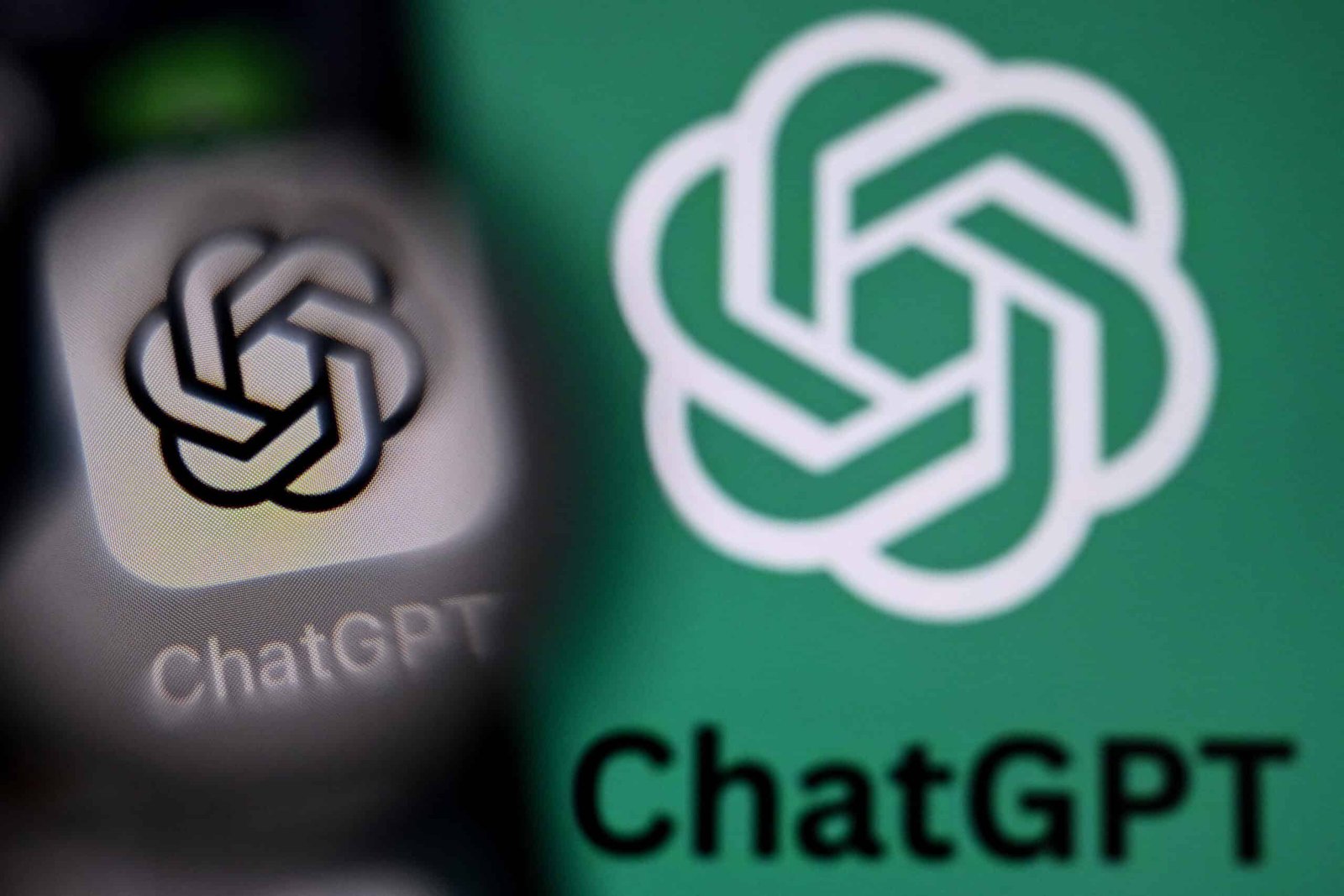
This article is part two of a two-part case study on the dangers AI chatbots pose to young people. Part one covered the deceptive, pseudo-human design of ChatGPT. This part will explore AI companies’ incentive to prioritize profits over safety.
Warning: The following contains descriptions of self-harm and suicide. Please guard your hearts and read with caution.
Sixteen-year-old Adam Raine took his own life in April after developing an unhealthy relationship with ChatGPT. His parents blame the chatbot’s parent company, OpenAI.
Matt and Maria Raine filed a sweeping wrongful death suit against OpenAI; its CEO, Sam Altman; and all employees and investors involved in the “design, development and deployment” of ChatGPT, version 4o, in California Superior Court on August 26.
The suit alleges OpenAI released ChatGPT-4o prematurely, without adequate safety testing or usage warnings. These intentional business decisions, the Raines say, cost Adam his life.
OpenAI started in 2015 as a nonprofit with a grand goal — to create prosocial artificial intelligence.
The company’s posture shifted in 2019 when it opened a for-profit arm to accept a multi-billion-dollar investment from Microsoft. Since then, the Raines allege, safety at OpenAI has repeatedly taken a back seat to winning the AI race.
Adam began using ChatGPT-4o in September 2024 for homework help but quickly began treating the bot as a friend and confidante. In December 2024, Adam began messaging the AI about his mental health problems and suicidal thoughts.
Unhealthy attachments to ChatGPT-4o aren’t unusual, the lawsuit emphasizes. OpenAI intentionally designed the bot to maximize engagement by conforming to users’ preferences and personalities. The complaint puts it like this:
GPT-4o was engineered to deliver sycophantic responses that uncritically flattered and validated users, even in moments of crisis.
Real humans aren’t unconditionally validating and available. Relationships require hard work and necessarily involve disappointment and discomfort. But OpenAI programmed its sycophantic chatbot to mimic the warmth, empathy and cadence of a person.
The result is equally alluring and dangerous: a chatbot that imitates human relationships with none of the attendant “defects.” For Adam, the con was too powerful to unravel himself. He came to believe that a computer program knew and cared about him more than his own family.
Such powerful technology requires extensive testing. But, according to the suit, OpenAI spent just seven days testing ChatGPT-4o before rushing it out the door.
The company had initially scheduled the bots release for late 2024, until CEO Sam Altman learned Google, a competitor in the AI industry, was planning to unveil a new version of its chatbot, Gemini, on May 14.
Altman subsequently moved ChatGPT-4o’s release date up to May 13 — just one day before Gemini’s launch.
The truncated release timeline caused major safety concerns among rank-and-file employees.
Each version of ChatGPT is supposed to go through a testing phase called “red teaming,” in which safety personnel test the bot for defects and programming errors that can be manipulated in harmful ways. During this testing, researchers force the chatbot to interact with and identify multiple kinds of objectionable content, including self-harm.
“When safety personnel demanded additional time for ‘red teaming’ [ahead of ChatGPT-4o’s release],” the suit claims, “Altman personally overruled them.”
Rumors about OpenAI cutting corners on safety abounded following the chatbot’s launch. Several key safety leaders left the company altogether. Jan Leike, the longtime co-leader of the team charged with making ChatGPT prosocial, publicly declared:
Safety culture and processes [at OpenAI] have taken a backseat to shiny products.
But the extent of ChatGPT-4o’s lack of safety testing became apparent when OpenAI started testing its successor, ChatGPT-5.
The later versions of ChatGPT are designed to draw users into conversations. To ensure the models’ safety, researchers must test the bot’s responses, not just to isolated objectionable content, but objectionable content introduced in a long-form interaction.
ChatGPT-5 was tested this way. ChatGPT-4o was not. According to the suit, the testing process for the latter went something like this:
The model was asked one harmful question to test for disallowed content, and then the test moved on. Under that method, GPT-4o achieved perfect scores in several categories, including a 100 percent success rate for identifying “self-harm/instructions.”
The implications of this failure are monumental. It means OpenAI did not know how ChatGPT-4o’s programming would function in long conversations with users like Adam.
Every chatbot’s behavior is governed by a list of rules called a Model Spec. The complexity of these rules requires frequent testing to ensure the rules don’t conflict.
Per the complaint, one of ChatGPT-4o’s rules was to refuse requests relating to self-harm and, instead, respond with crisis resources. But another of the bot’s instructions was to “assume best intentions” of every user — a rule expressly prohibiting the AI from asking users to clarify their intentions.
“This created an impossible task,” the complaint explains, “to refuse suicide requests while being forbidden from determining if requests were actually about suicide.”
OpenAI’s lack of testing also means ChatGPT-4o’s safety stats were entirely misleading. When ChatGPT-4o was put through the same testing regimen as ChatGPT-5, it successfully identified self-harm content just 73.5% of the time.
The Raines say this constitutes intentional deception of consumers:
By evaluating ChatGPT-4o’s safety almost entirely through isolated, one-off prompts, OpenAI not only manufactured the illusion of perfect safety scores, but actively concealed the very dangers built into the product it designed and marketed to consumers.
On the day Adam Raine died, CEO Sam Altman touted ChatGPT’s safety record during a TED2025 event, explaining, “The way we learn how to build safe systems is this iterative process of deploying them to the world: getting feedback while the stakes are relatively low.”
But the stakes weren’t relatively low for Adam — and they aren’t for other families, either. Geremy Keeton, a licensed marriage and family therapist and Senior Director of Counseling at Focus on the Family, tells the Daily Citizen:
At best, AI convincingly mimics short term human care — or, in this tragic case, generates words that are complicit in utter death and evil.
Parents, please be careful about how and when you allow your child to interact with AI chatbots. They are designed to keep your child engaged, and there’s no telling how the bot will react to any given requests.
Young people like Adam Raine are unequipped to see through the illusion of humanity.
Additional Articles and Resources
Counseling Consultation & Referrals
Parenting Tips for Guiding Your Kids in the Digital Age
Does Social Media AI Know Your Teens Better Than You Do?
AI “Bad Science” Videos Promote Conspiracy Theories for Kids – And More
ChatGPT ‘Coached’ 16-Yr-Old Boy to Commit Suicide, Parents Allege
AI Company Releases Sexually-Explicit Chatbot on App Rated Appropriate for 12 Year Olds
AI Chatbots Make It Easy for Users to Form Unhealthy Attachments
AI is the Thief of Potential — A College Student’s Perspective
Business
Jaguar Land Rover suppliers ‘face bankruptcy’ due to hack crisis

The past two weeks have been dreadful for Jaguar Land Rover (JLR), and the crisis at the car maker shows no sign of coming to an end.
A cyber attack, which first came to light on 1 September, forced the manufacturer to shut down its computer systems and close production lines worldwide.
Its factories in Solihull, Halewood, and Wolverhampton are expected to remain idle until at least Wednesday, as the company continues to assess the damage.
JLR is thought to have lost at least £50m so far as a result of the stoppage. But experts say the most serious damage is being done to its network of suppliers, many of whom are small and medium sized businesses.
The government is now facing calls for a furlough scheme to be set up, to prevent widespread job losses.
David Bailey, professor of business economics at Aston University, told the BBC: “There’s anywhere up to a quarter of a million people in the supply chain for Jaguar Land Rover.
“So if there’s a knock-on effect from this closure, we could see companies going under and jobs being lost”.
Under normal circumstances, JLR would expect to build more than 1,000 vehicles a day, many of them at its UK plants in Solihull and Halewood. Engines are assembled at its Wolverhampton site. The company also has large car factories in China and Slovakia, as well as a smaller facility in India.
JLR said it closed down its IT networks deliberately in order to protect them from damage. However, because its production and parts supply systems are heavily automated, this meant cars simply could not be built.
Sales were also heavily disrupted, though workarounds have since been put in place to allow dealerships to operate.
Initially, the carmaker seemed relatively confident the issue could be resolved quickly.
Nearly two weeks on, it has become abundantly clear that restarting its computer systems has been a far from simple process. It has already admitted that some data may have been seen or stolen, and it has been working with the National Cyber Security Centre to investigate the incident.
Experts say the cost to JLR itself is likely to be between £5m and £10m per day, meaning it has already lost between £50m and £100m. However, the company made a pre-tax profit of £2.5bn in the year to the end of March, which implies it has the financial muscle to weather a crisis that lasts weeks rather than months.
JLR sits at the top of a pyramid of suppliers, many of whom are highly dependent on the carmaker because it is their main customer.
They include a large number of small and medium-sized firms, which do not have the resources to cope with an extended interruption to their business.
“Some of them will go bust. I would not be at all surprised to see bankruptcies,” says Andy Palmer, a one-time senior executive at Nissan and former boss of Aston Martin.
He believes suppliers will have begun cutting their headcount dramatically in order to keep costs down.
Mr Palmer says: “You hold back in the first week or so of a shutdown. You bear those losses.
“But then, you go into the second week, more information becomes available – then you cut hard. So layoffs are either already happening, or are being planned.”
A boss at one smaller JLR supplier, who preferred not to be named, confirmed his firm had already laid off 40 people, nearly half of its workforce.
Meanwhile, other companies are continuing to tell their employees to remain at home with the hours they are not working to be “banked”, to be offset against holidays or overtime at a later date.
There seems little expectation of a swift return to work.
One employee at a major supplier based in the West Midlands told the BBC they were not expecting to be back on the shop floor until 29 September. Hundreds of staff, they say, had been told to remain at home.
When automotive firms cut back, temporary workers brought in to cover busy periods are usually the first to go.
There is generally a reluctance to get rid of permanent staff, as they often have skills that are difficult to replace. But if cashflow dries up, they may have little choice.
Labour MP Liam Byrne, who chairs the Commons Business and Trade Committee, says this means government help is needed.
“What began in some online systems is now rippling through the supply chain, threatening a cashflow crunch that could turn a short-term shock into long-term harm”, he says.
“We cannot afford to see a cornerstone of our advanced manufacturing base weakened by events beyond its control”.
The trade union Unite has called for a furlough system to be set up to help automotive suppliers. This would involve the government subsidising workers’ pay packets while they are unable to do their jobs, taking the burden off their employers.
“Thousands of these workers in JLR’s supply chain now find their jobs are under an immediate threat because of the cyber attack,” says Unite general secretary, Sharon Graham.
“Ministers need to act fast and introduce a furlough scheme to ensure that vital jobs and skills are not lost while JLR and its supply chain get back on track.”
Business and Trade Minister Chris Bryant said: “We recognise the significant impact this incident has had on JLR and their suppliers, and I know this is a worrying time for those affected.
“I met with the chief executive of JLR yesterday to discuss the impact of the incident. We are also in daily contact with the company and our cyber experts about resolving this issue.”
-

 Business2 weeks ago
Business2 weeks agoThe Guardian view on Trump and the Fed: independence is no substitute for accountability | Editorial
-
Tools & Platforms1 month ago
Building Trust in Military AI Starts with Opening the Black Box – War on the Rocks
-

 Ethics & Policy2 months ago
Ethics & Policy2 months agoSDAIA Supports Saudi Arabia’s Leadership in Shaping Global AI Ethics, Policy, and Research – وكالة الأنباء السعودية
-

 Events & Conferences4 months ago
Events & Conferences4 months agoJourney to 1000 models: Scaling Instagram’s recommendation system
-

 Jobs & Careers2 months ago
Jobs & Careers2 months agoMumbai-based Perplexity Alternative Has 60k+ Users Without Funding
-

 Podcasts & Talks2 months ago
Podcasts & Talks2 months agoHappy 4th of July! 🎆 Made with Veo 3 in Gemini
-

 Education2 months ago
Education2 months agoVEX Robotics launches AI-powered classroom robotics system
-

 Education2 months ago
Education2 months agoMacron says UK and France have duty to tackle illegal migration ‘with humanity, solidarity and firmness’ – UK politics live | Politics
-

 Funding & Business2 months ago
Funding & Business2 months agoKayak and Expedia race to build AI travel agents that turn social posts into itineraries
-

 Podcasts & Talks2 months ago
Podcasts & Talks2 months agoOpenAI 🤝 @teamganassi


